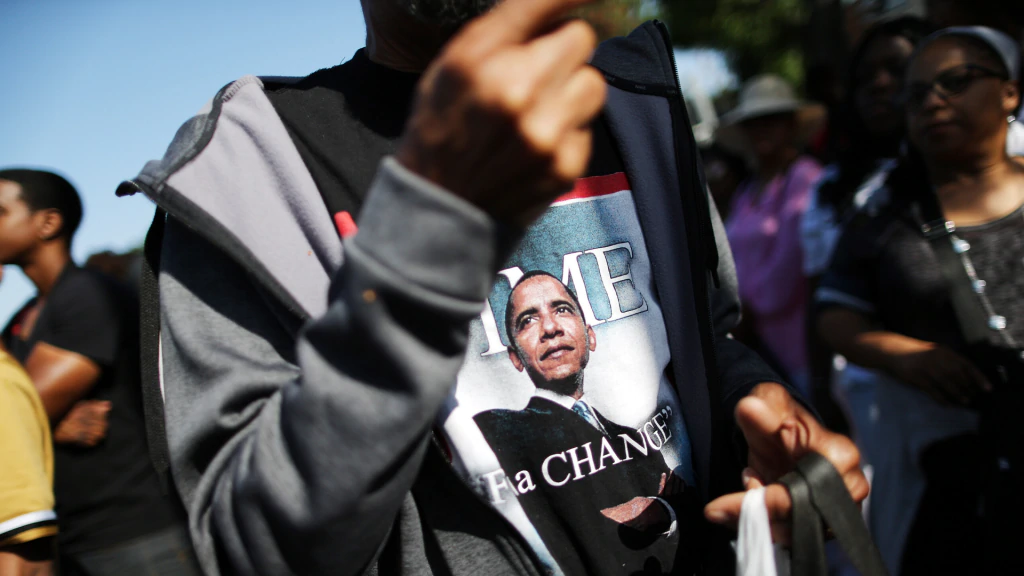[ad_1]
Black men’s mental health improved when Barack Obama became the U.S. president, according to new research findings from Rice University.
In the “‘Yes We Can!’ The Mental Health Significance for U.S. Black Adults of Barack Obama’s 2008 Presidential Election” study, lead researcher Tony Brown found that the “symbolic empowerment” of Obama getting elected increased the hope and optimism of Black men.
READ MORE: Obama’s health insurance overhaul a winner in midterms
“Specifically, hope and optimism spike when members of an aggrieved group believe whatever injustice they face will soon be alleviated. For example, during the 1960s in the United States, the passage of landmark legislation pronouncing racial segregation of public spaces and accommodations illegal was a moment of symbolic empowerment for most Blacks. Accompanying the legislation was anticipation that the experience of full citizenship would soon cross the color line. However, we suspect the health significance of symbolic empowerment is short-lived because racial disparities in lifestyles and life chances remain durable and reinforce each other,” the study found.
Brown, a sociology professor at Rice, and the study’s co-authors surveyed Black men on the stress, depression and other emotional and mental problems they were experiencing 30 days before Obama was elected in 2008. They followed up with the same question 30 days after the election. Specifically, they asked the men, in part, “for how many days during the past 30 days was your mental health not good?”
On average, Black men said they had four bad mental health days prior to Obama’s election. That number dropped down to three following the election, according to a press release put out by Rice University.
“The study’s findings are important because we do not fully understand what factors protect mental health,” Brown said in the press release. “Specifically, the findings demonstrate that sociopolitical shifts matter for the health of Black men and that everyday conditions of life act as social determinants of health.”
Brown said typically sociologists focus on the mental health of a population after negative incidents, such as discrimination, job loss, poverty or disaster. The reason this study is unique is that researchers looked at the mental impact of a positive event on Black people’s lives and health.
“This is one major reason we pursued this study — we wanted to know if there were any health implications from this momentous occasion in U.S. history,” Rice said.
The study’s results for Black women differed from Black men as they went in the reverse direction.
During the 30 days before Obama was elected, Black women responded that they had, on average, 4.6 poor mental health days. In the 30 days after the election, those poor mental health days went up to five days.
READ MORE: Barack Obama makes case for more women in leadership: ‘It’s old men not getting out of the way’
Brown theorizes that Black women’s mental health could have gone slightly up in that timeframe for a couple of reasons.
“Black women could have faced an internal conflict over not being able to vote for Hillary Clinton, a woman,” Brown theorizes in the press release. “They could also have been concerned over the uptick in death threats just 10 days following Obama’s election, worrying about the new president-elect in the same way they would worry about their own husbands, fathers or sons. They might also have been concerned over how President Obama would deal with discrimination against Black men versus Black women.”
Also, Brown said it’s possible Black women saw the future and worried that Black people would face backlash for the historic election.
The survey data came from the Behavioral Risk Factor Surveillance System, according to the press release.
[ad_2]
Source link

